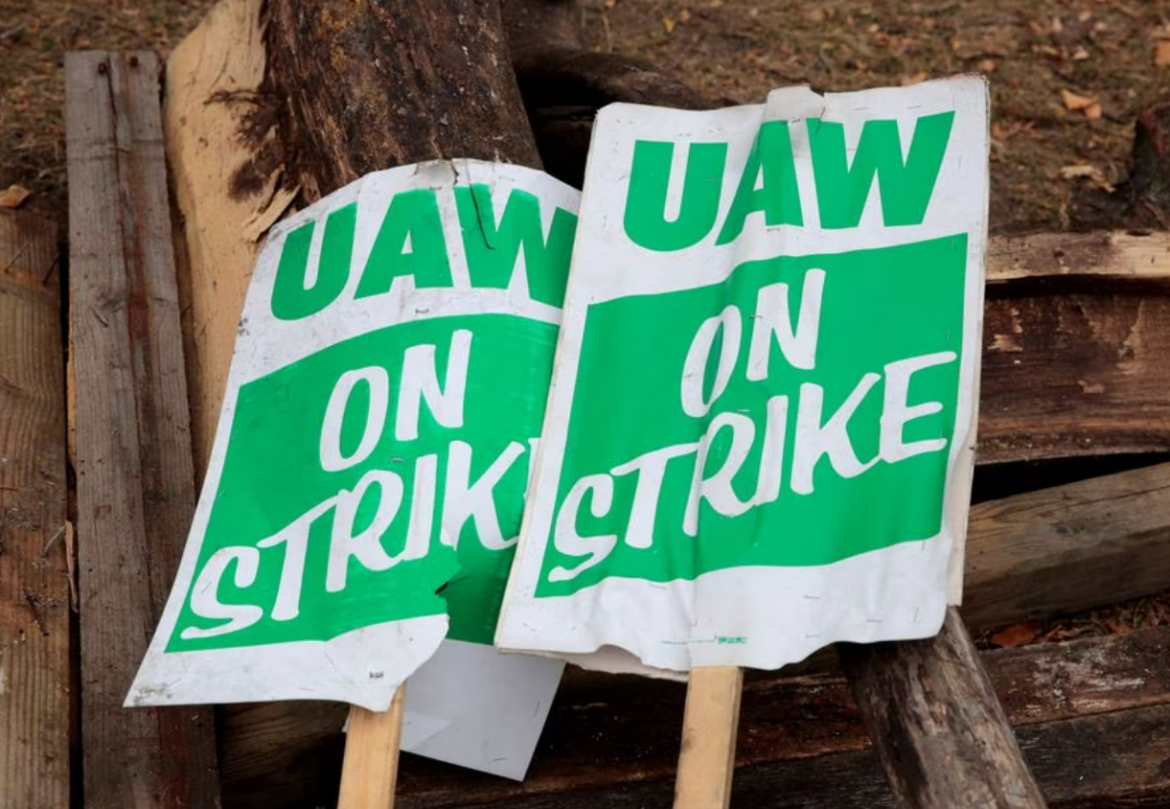The United Auto Workers (UAW) union has unveiled a strategy of localized strikes aimed at specific U.S. auto plants, marking a significant development in their ongoing negotiations with the Detroit Three automakers. If agreements are not reached by the late Thursday deadline, these targeted strikes will represent the first-ever simultaneous labor stoppage at all three Detroit automakers.
During a Facebook Live address, UAW President Shawn Fain emphasized the need for action if agreements are not met, stating, “To win, we’re likely going to have to take action.” However, he clarified that the union is not planning company-wide walkouts but intends to escalate if negotiations do not improve.
Creating Confusion with Targeted Strikes
Fain outlined a strategy to “create confusion” through a series of work stoppages at unspecified U.S. plants, with the union hitting where necessary to make their point.
Unresolved Negotiations
The Detroit Three automakers—Ford, General Motors (GM), and Stellantis (Chrysler’s parent company)—have offered pay raises of up to 20% over four and a half years, but Fain deemed these hikes inadequate. The union has sought a 40% pay increase, including an immediate 20% hike upon contract ratification and 5% annual increments.
Automakers’ Responses
Ford, in particular, expressed frustration, claiming they had not received genuine counteroffers from the UAW and urged a focus on problem-solving rather than strikes. Stellantis awaited the UAW’s response to their offer, while GM stated they are making progress in key areas.
Union’s Demands
The UAW’s demands include restoring defined benefit pensions for all workers, implementing 32-hour work weeks, cost-of-living hikes, job security guarantees, and ending the use of temporary workers. Automakers have rejected some of these demands, including pension and workweek changes, leading to the current impasse.
Economic Impact
An estimated 10-day UAW strike across the Detroit Three manufacturers could cost over USD 5 billion to carmakers, suppliers, and workers. This disruption may also affect the broader auto supplier network.
Biden’s Encouragement
U.S. President Joe Biden has encouraged both parties to reach a mutually beneficial agreement, emphasizing the importance of keeping UAW workers central to the auto industry’s future.
Union Rally
The UAW is planning a rally in Detroit, featuring Senator Bernie Sanders and other members of Congress, coinciding with the first day of walkouts. Targeting strategic plants could compel automakers to halt U.S. production, potentially extending the time before the UAW’s strike fund is depleted.
As negotiations continue and the UAW’s strike strategy unfolds, the automotive industry and its stakeholders are closely monitoring developments that could have far-reaching consequences.



